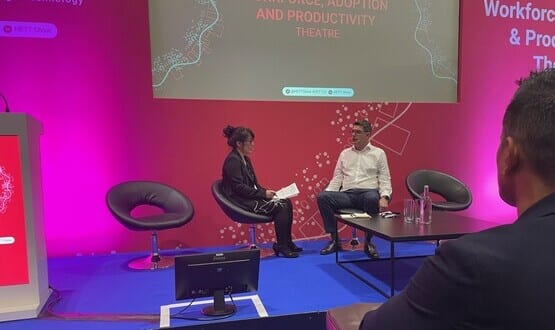Tight Timetable Set For NHS Technology Procurement
- 31 July 2002
A newly published summary of the planned procurement strategy for delivering the national NHS IT programme ‘Delivering 21st Century IT Support’ makes clear that the strategy will depend on contracting out key components of the programme to consortia of suppliers led by heavyweight Prime Service Providers (PSPs) at both the national and regional levels.
What the draft document’s outline timetable starkly sets out is that even with a fair wind behind it the new NHS IT Strategy, referred to as ‘The Programme’, will not actually begin to deliver any additional frontline IT systems until late 2003. And this assumes the extremely tight timetable for this highly complex project runs like clockwork.
The summary procurement strategy document says that the aim is to bring together procurement of the four main elements of the Programme: infrastructure; integrated care record services (ICRS) – the snappy new heading for electronic records; electronic appointment booking; and electronic transfer of prescriptions (ETP).
The core of the programme will be delivered through strategic outsourcing, with delivery of the four key elements outsourced to PSPs who will in turn manage consortia of nationally approved sub-contractors. Other key elements of the programme, such as the health records infrastructure (HRI), are set to be delivered nationally by the NHS Information Authority.
At the heart of implementing the strategy will be about four PSPs, who will be awarded national contracts to work with strategic health authorities (StHAs) to deliver and integrate core systems working to negotiated service level agreements (SLAs).
Further ‘domain’ PSPs may be appointed to handle national services such as infrastructure, electronic booking, and possibly ETP, though there is a strong suggestion ETP may be incorporated into the ICRS strand of the programme.
The StHA-level PSPs, meanwhile, will lead a consortium of specialist systems suppliers and work with either individual StHAs or groupings of StHAs to deliver the ‘Programme’. It will be up to StHAs to select a single PSP to work with using criteria developed with the national team.
"Each PSP will have an aligned consortium of vendors for the ICRS element of the Programme and will work with the PSPs for infrastructure, electronic booking and possibly ETP to provide an integrated service locally," says the summary document.
The StHA PSPs will be mandated to work with the national ‘domain’ PSPs for electronic booking, the infrastructure providers and the National Service Providers. They will also not be allowed to make their products exclusive or mandatory to their StHA.
Sir John Pattison told E-Health Insider last week that he expected the majority of StHAs to move forward in groups and that implementation will be spread over a minimum of three phased waves of StHAs. Crucially, it is StHAs that will have ultimate responsibility for the successful implementation of the new IT services.
And the timescales set out are extremely tight, providing no room for slippage or delay. The OJEC advert for the PSPs is scheduled to be placed in October, with a long-list created by December and a short-list agreed by April 2003. From August 2003 the first wave of StHAs will begin detailed planning with PSPs, and implementation will begin by November 2003.
The furthest advanced part of the Programme is electronic appointment booking, which has already reached the selecting a PSP from a short-list. A ‘domain’ PSP contract for electronic booking is scheduled to be agreed by December 2002. Once selected, each StHA will be expected to work with this ‘domain’ PSP, either directly or through another PSP to implement electronic booking beginning in February 2003.
The approach for ETP remains unclear at this stage. "Like electronic booking it could be the subject of a single national application provided by a single PSP or it could be provided as part of the ICRS," says the summary document.
Infrastructure, meanwhile, will be broken down into sub-components. NHSnet will be re-procured in a national procurement to provide greatly improved bandwidth by 2004. A national e-mail and directory service for all NHS staff will be provided — EDS were first named as preferred suppliers for this overdue contract back in March. The e-mail and directory service is due to be delivered by March 2003.
Probably the most ill-defined part of the procurement approach, and yet the single most important part of the ‘Programme’ is the extremely ambitious concept of ICRS, which is described as "a broad, continuously expanding and maturing portfolio of services covering the generation, movement and access to health records". A hefty new consultation document on the ICRS concept does little to clarify the situation.
Other elements of infrastructure, such as Local Area Networks, telecoms, network services and hardware will be delivered through framework contracts that local NHS organisations can use to call off
Overall, the summary document does little but sketch out the broad features of the procurement approach currently envisaged by the DoH. Actually translating this into a detailed, robust, and rapidly deliverable programme of action remains a huge challenge.




